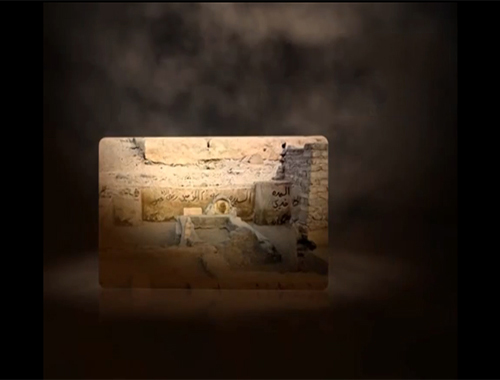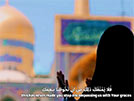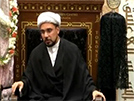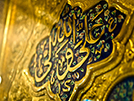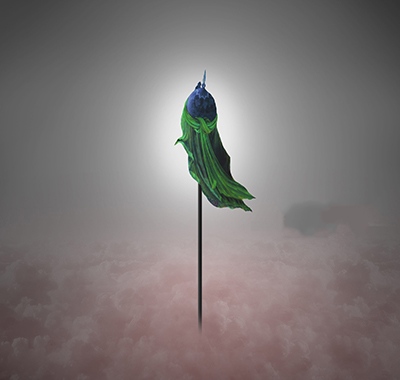
On the day of Ashura, over 1300 years ago, a noble man was slaughtered thirsty on the land of Karbala, just by the river Euphrates.
The head of the martyr was severed and raised upon a spear. The torn body, with uncountable wounds, was left on the hot sands under the burning sun.
The warriors, who accompanied that noble man, were also martyred and beheaded. Their heads joined the head of their master upon the spears. The household of those martyrs were looted and taken as captive.
The heads on the spears were taken all around the cities to show off the so-called victory. The caravan of captive widows and orphans accompanied the severed heads of their beloved ones.
The sacred head kept reciting verses from the holy Quran whilst upon the spears. It kept warning the ignorant people, yet no one listened.
After a long painful journey, the head was finally returned to Karbala and buried with the body of the martyr.
The head of Imam Hussain (A.S) was buried, yet, the head remains held high.
People may argue, how would a buried head remain held high?
We believe that the head remains held high by inspiration.
Lady Zainab (S.A) inherited the tragedies of her mother and faced them with the patience of her father to resume the mission of her brother.
The spirituality of the sacred head became hearable in the whispered prayers of Al-Sajjad. The faith and passion for the creator are revived in the words: O Allah, who can have tasted the sweetness of your love, then wanted another in place of you?
Persistence is inspired from the head held high. It inspired all the infallible Imams (A.S) down to the Imam of time, the Awaited Mahdi (A.S). The endurance of the head held high is felt in the existence of the awaited Imam, who lives among us spreading the mercy of the almighty.
Again, we live the utmost spirituality inspired by the sacred head when we listen to Duaa Arafa. Every year Millions of Muslims respond to the call of the almighty and go on pilgrimage. On the day of Arafa, hundreds of thousands of believers recite this amazing supplication:
That eye should be blind if it does not see you watching it, and the trade of your servant would be lost without giving him a share of your love.
The sacred head of imam Hussain (A.S) inspires our prayers. When Imam Hussain (A.S) was a child, the prophet was teaching him how to pray and start prayer with Allah Akbar.
At that time Imam Hussain (A.S), being a child could not follow until the seventh call of Allah Akbar. Since that day, many followers of the holy household repeat Allah Akbar seven time to start their prayers.
Ref: Almujtaba Islamic Network
 Massacre of Karbala - Islam Guidance
Massacre of Karbala - Islam Guidance